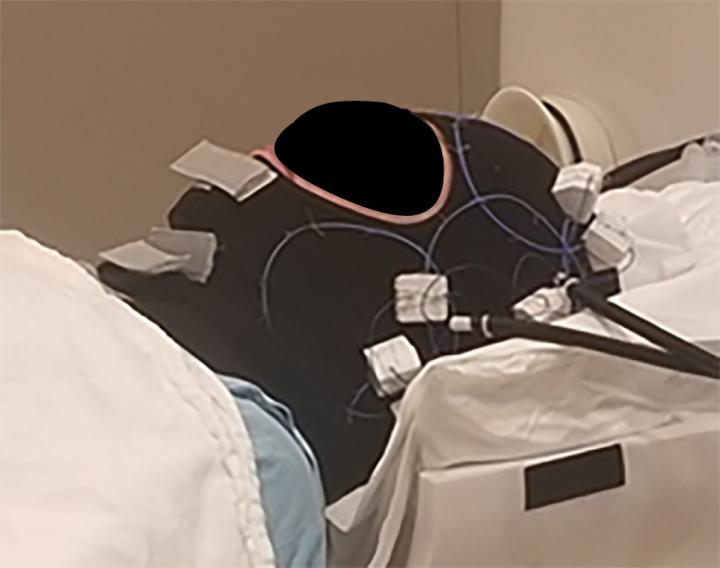GE Healthcare’s prototype 16-channel head Adaptive Image Receive (AIR) radiofrequency coil outperformed a conventional 8-channel head coil for in vivo whole-brain imaging

Credit: American Roentgen Ray Society (ARRS), American Journal of Roentgenology (AJR)
Leesburg, VA, December 3, 2020–According to an article in ARRS’ American Journal of Roentgenology (AJR), a prototype 16-channel head Adaptive Image Receive (AIR) radiofrequency coil from GE Healthcare outperformed a conventional 8-channel head coil for in vivo whole-brain imaging, though it did not perform as well as a conventional 32-channel head coil.
“This study shows the feasibility of the novel AIR coil technology for imaging the brain and provides insight for future coil design improvements,” concluded first author Petrice M. Cogswell of the Mayo Clinic in Rochester, Minnesota.
Lightweight and flexible with an open, ski-mask design, the emergent AIR coil technology exhibits electrical characteristics that overcome several of the limitations of traditional rigid coil designs.
Imaging a phantom and 15 healthy adult participants, Cogswell and colleagues used clinically available MRI sequences to compare their 16-channel head AIR coil with conventional 8- and 32-channel head coils. During consensus review, two board-certified neuroradiologists graded the AIR coil against the 8-channel coil and the 32-channel coil on a 5-point ordinal scale in multiple categories.
On average, the signal-to-noise ratio, structural sharpness, and overall image quality scores of the 16-channel AIR coil prototype were better than those of the 8-channel coil but not as good as those of the 32-channel coil.
Noise covariance matrices showed stable performance of the AIR coil across participants. Overall, the median g-factors for the 16-channel AIR coil were less than those of the 8-channel coil but greater than those of the 32-channel coil.
“The advantages of the AIR coil technology for reduction of claustrophobia, improved airway access and monitoring of patients under anesthesia, and overall better user comfort may be investigated in future studies,” the authors of this AJR article added.
###
Founded in 1900, the American Roentgen Ray Society (ARRS) is the first and oldest radiological society in North America, dedicated to the advancement of medicine through the profession of radiology and its allied sciences. An international forum for progress in medical imaging since the discovery of the x-ray, ARRS maintains its mission of improving health through a community committed to advancing knowledge and skills with an annual scientific meeting, monthly publication of the peer-reviewed American Journal of Roentgenology (AJR), quarterly issues of InPractice magazine, AJR Live Webinars and Podcasts, topical symposia, print and online educational materials, as well as awarding scholarships via The Roentgen Fund®.
Media Contact
Logan K. Young
[email protected]
Related Journal Article
http://dx.




